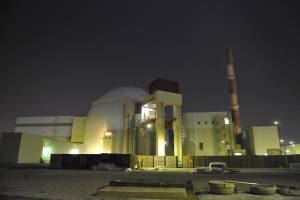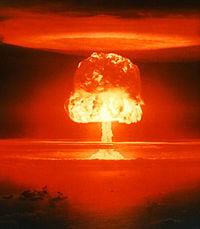Iranian lawmakers expressed satisfaction with the framework nuclear deal. According to their chief negotiator, Iran’s nuclear program will continue and all sanctions will be removed.
Iran’s parliament expressed satisfaction on Tuesday after Foreign Minister Mohammad Javad Zarif and Atomic Energy Organization of Iran (AEOI) Chief Ali Akbar Salehi briefed lawmakers on the results of last week’s talks with the six world powers in Lausanne, Switzerland, Iran’s Fars News agency (FNA) reports. Zarif also declared Iran’s intentions to push forward with the development of its nuclear program.
“All together, the MPs voiced satisfaction in Zarif’s explanations,” Behrouz Ne’mati, a presiding board member, told FNA on Tuesday. “There is not much concern among the lawmakers now, and their worries were mostly rooted in the allegations raised by the American side in recent days,” he added.
“But”, he stressed, “the legislature wants the final deal to include objective guarantees for the one-stage removal of the sanctions by the West.”
Earlier Tuesday, Salehi said that the Western countries opted to try diplomacy and negotiations with Tehran because of Iran’s high nuclear capability.
“The AEOI chief told the closed-door session of the parliament today that the Islamic Republic of Iran has acquired such a (high level of) power in the nuclear technology that this very power has forced the western side to see no way out but sitting to the negotiating table with Iran,” Gholam-Ali Jafarzade, an MP who was present at the parliament’s closed-door session, told FNA.
According to another lawmaker who attended the meeting, Zarif and Salehi said that the country would inject UF6 gas into the latest generation of its centrifuge machines as soon as a final nuclear deal goes into effect.
“The AEOI chief and the foreign minister presented hopeful remarks about nuclear technology research and development which, they said, have been agreed upon during the talks, and informed that gas will be injected into IR8 (advanced centrifuge machines) with the start of the agreement,” Javad Karimi Qoddousi, a member of the parliament’s National Security and Foreign Policy Commission, said following the closed-door session.
This contradicts what the US had stated.
“Iran will only enrich uranium at the Natanz facility, with only 5,060 IR-1 first-generation centrifuges for ten years,” a US document states. “Iran has agreed to only enrich uranium using its first generation (IR-1 models) centrifuges at Natanz for ten years, removing its more advanced centrifuges… Iran will not use its IR-2, IR-4, IR-5, IR-6, or IR-8 models to produce enriched uranium for at least ten years.”
Contradictory Understandings of the Deal?
In a press conference after the framework agreement was announced, Zarif said that in a final deal, Iran would be committed to the documents that it signs and expects the other side to do the same.
The negotiating team will “proceed [towards a final deal] based on their present shared understanding,” he said, adding that “if any problem arises, we should sit and talk based on mutual respect and then move ahead.”

Iran’s nuclear plant in Bushehr. (AP/ISNA, Mehdi Ghasemi)
“What was agreed as different solutions to achieve a comprehensive joint plan of action is based on a win-win approach that will end the sanctions against Iran,” Zarif stated. “Iran’s nuclear program will continue, but we will adopt measures to build confidence at international level.”
Once the document is drafted and put into effect, Iran will inspect the other side’s actions and attitude in order to verify their compliance with the terms of the final deal, he added.
According to Zarif, “there will be a text on which we will agree and move ahead step by step, and all the mechanisms should go into effect article by article. We will be ready to remove any pretext or excuse that could be sought by the western side through logic and reasoning.
“But if lack of action is witnessed, reciprocal measures will be taken,” he warned.
Zarif underlined that Iran’s nuclear research and development will continue and that none of Iran’s nuclear facilities will be shut down.
He repeated that all of the US, EU and UN Security Council sanctions against Iran will be removed.
By: United with Israel Staff
Sign the Petition to Stop a Nuclear Iran

The US Congress must ensure that sanctions against Iran remain in force until the nuclear threat is completely eliminated.
I strongly oppose easing sanctions before the nuclear threat from Iran has been eliminated. Allowing Iran to enrich uranium without being subject to 'anytime, anywhere' inspections is extremely dangerous and unacceptable. Iran's nuclear program must be stopped.